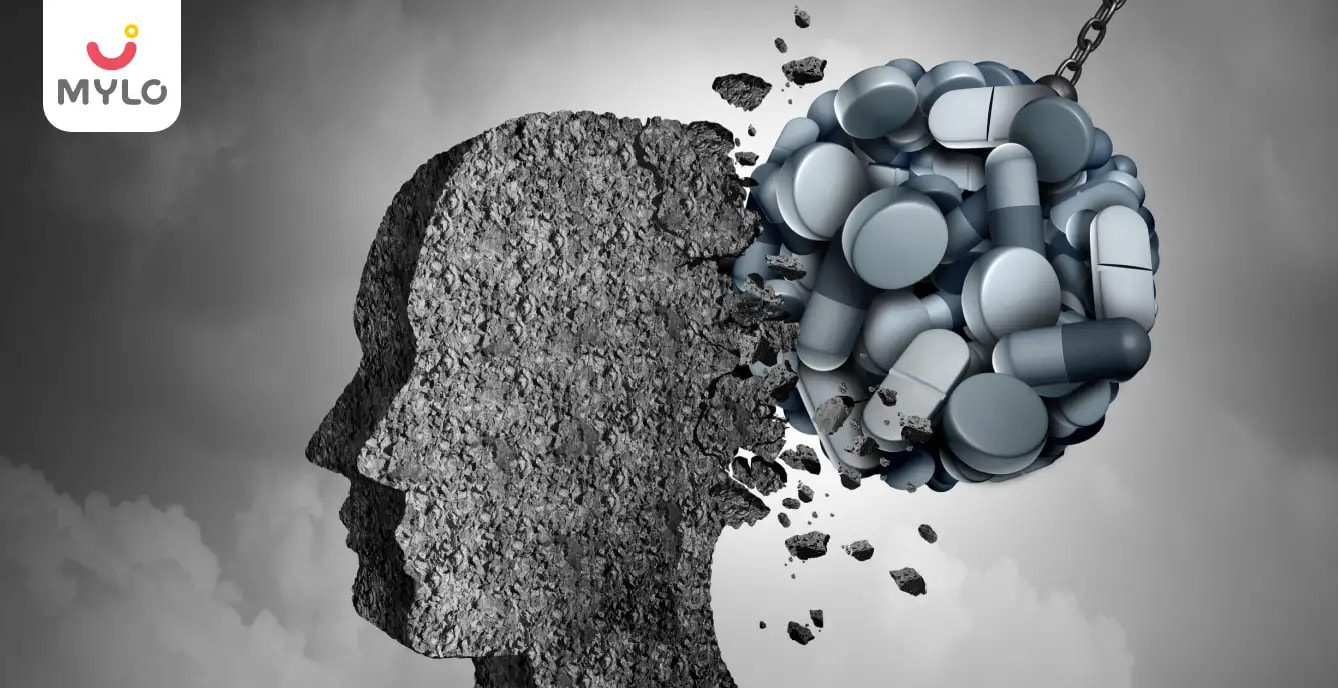- Home

- Opioid Overdose, Risk & Prevention
In this Article
Getting Pregnant
Opioid Overdose, Risk & Prevention
Updated on 9 May 2023
Opioids, even when used for a short duration, can lead to numerous side effects, addiction as well as overdose. Although they are available as prescription drugs today, you might want to rethink before purchasing one. Continue reading through to learn more about the short-term advantages and long-term life-threatening issues related to opioid medications.
What Are Opioids
Opioids are euphoric substances that bind to receptors in the body in order to produce effects similar to morphine. In medical terms, they are used to treat pain and are commonly used as anesthesia. Opioids are also used to suppress extreme diarrhea, opioid replacement therapies, and reverse numerous drug overdoses. However, people usually use opioid medications to suppress their coughs.
The receptors to where opioids bind are present in the nervous system of the human body. These receptors are present in the outer shells of neurons. As these opioid substances attach to the opioid receptors, an interaction of chemical reactions is triggered between neurons. This results in euphoric pleasures as well as pain relief.
Although opioid drugs are commonly prescribed as medicinal drugs, their pleasurable characteristics give them an addictive outlook. Thus, this is exactly why an individual might end up craving more after trying it out once. Eventually, this can become a routine, resulting in unexpected but serious consequences later on.
Overdose Of Opioids
Opioids are extremely addictive due to the strong euphoric effects they have. Many individuals usually suffer from an overdose of opioids, resulting in breathlessness, and in extreme situations, even death. In fact, more than a million deaths are due to an overdose of drugs alone. Besides, 30% of these deaths are mostly related to overdose of opioids.
An individual suffering from an overdose of opioids will need immediate medical attention. In fact, this is an extremely life-threatening condition. Middle-aged people who have a history of taking medical sedatives or substance abuse are more likely to take high doses of opioid painkillers. If you are suffering from an overdose or know someone suffering from an opioid overdose, taking a few precautions as well as therapies could help!
Risk Factors For Opioid Overdose
There are a lot of risk factors associated with opioid overdose. In fact, physical as well as mental symptoms occur right after taking way too many opioids, which may be present in prescribed pain medications or illegal drugs, especially heroin.
A few of the major symptoms include confusion, breathlessness, unconsciousness, and lack of focus. This condition also indicates a medical emergency, and one will need to take immediate steps in order to save themselves or their friends who suffer from an opioid overdose. A few treatments include taking medications that are known to reverse the impact of opioids and a breathing system that can provide relief from symptoms like breathlessness.
Opioid overdose is a serious and potentially life-threatening condition that can occur when a person takes too much of an opioid medication or substance. Opioids are a class of drugs that include prescription painkillers, such as oxycodone and hydrocodone, as well as illegal drugs like heroin. There are several risk factors that can increase a person's likelihood of experiencing an opioid overdose. These include:
1. Taking a high dose of an opioid:
The risk of overdose increases as the dose of the opioid increases. This is especially true for people who are not accustomed to taking opioids or have a lower tolerance for them.
2. Mixing opioids with other substances:
Taking an opioid in combination with other substances, such as alcohol or benzodiazepines (e.g., Xanax), can increase the risk of overdose. This is because these substances can potentiate the effects of the opioid and increase the risk of respiratory depression (slowed or stopped breathing).
3. Having a history of substance abuse:
People with a history of substance abuse, particularly those who have previously experienced an overdose, are at higher risk of experiencing another overdose.
4. Having certain medical conditions:
Certain medical conditions, such as liver or kidney disease, can affect how the body processes and eliminates opioids, increasing the risk of overdose.
5. Using street drugs:
The purity of street drugs, such as heroin, can vary widely, making it difficult for a person to know how much of the drug they are taking and increasing the risk of overdose.
It is crucial to be aware of these risk factors and to use opioids only as directed by a healthcare provider. If you are prescribed an opioid medication, be sure to follow your healthcare provider's instructions for use and never take more than the recommended dose. If you are using an illegal opioid, such as heroin, it is important to seek help for substance abuse and to consider safer alternatives, such as medication replacement treatment.
Reaction To Opioid Overdose Emergencies
After a person takes opioid medication, numerous reactions take place in the human body. These reactions can range from feelings of euphoria to vomiting, breathlessness, or even anaphylaxis. One might also experience irregular heartbeat or cardiac muscle tension. In extreme cases, opioid overdose can lead to direct death.
As for opioid intoxication, your mental status is usually affected. You might experience hallucinations, confusion, unresponsiveness, or breathlessness. Extreme dizziness, as well as loss of focus, are common symptoms as well. Therefore, recognizing many of these symptoms and responding accordingly can help you save numerous lives, especially in the long run.
You might want to seek immediate medical attention in case you find an affected individual showing the following signs and symptoms.
- Breathlessness
- Purple lips
- Extreme Seizures
- Unconsciousness
- Lack Of Focus
- Choking
- Clammy Skin
- Pinpoint Pupils
People Who Are Most Likely To See An Opioid Overdose
People who are most likely to develop an opioid addiction or overdose include non-Hispanic individuals, middle-aged men, 18 to 25-year-olds, or people who live in poverty conditions. Medicated people as well as individuals without insurance are more prone to developing opioid addiction.
Opiate toxicity can be guaranteed after a proper clinical test of the central nervous system. Depressions, pupillary miosis as well as respiratory problems are some of the most specific signs visible in people suffering from an opioid overdose.
Individuals who have been through physical, sexual as well as emotional abuse are also more likely to experience an opioid overdose. Apart from that, those who deal with peer pressure are also at a higher risk of substance abuse.
Prevention Of Overdose On Opioids
One can prevent opioid drug overdose by improving the selection of opioid prescription, preventing misuse as well as treating signs and symptoms of usage disorder. Reducing exposure to drugs that contain opioids can also help.
A few measures to follow when preventing opioid overdose are listed below.
1. Monitoring Prescription Drugs
Make sure you are aware of the kind of opioid drugs you are purchasing. Additionally, you can request your doctor to provide alternative drugs that do not contain opioids.
2. Learn More About Drug Laws
Conducting research on drug laws can help you comprehend the present properties and harmful effects of drugs in the market. Apart from that, you will also have a good idea about the alternative medications one can use.
3. Educating The Patient On The Disposal Of Opioid Medications
Once used, it is important that one disposes off opioid medications safely so that it does not come in contact with other individuals or animals.
4. Spread Awareness About The Risks Of Using Opioids
One cannot neglect the harmful impact of opioids on the human body as well as the increasing costs of treatments associated with reversing opioid addiction. Indeed, prevention is undoubtedly preferable to finding a cure.
5. Consider Downloading Self-Help Applications
If you are suffering from opioid overuse, you might want to download applications that can help you monitor your health status. Besides, you can also get in touch with doctors online and get a clear insight into the symptoms you are suffering.
6. Make Sure To Not Mix Different Drugs
Mixing drugs that contain opioids can have intoxicating effects on the human body. In fact, one cannot predict how one medication will react with another medication containing opioids. In case you have to mix two medications or consume them simultaneously, you can consider talking to your doctor about other alternative options.
7. Consider Learning More About Your Health As Well As Your Body
The best treatment one could give themselves is learning more about their body and their health. This way, you will be able to interpret your body’s tolerance level and the resulting effects. One can then treat their conditions accordingly.
8. Do Not Consume Opioid Medications In Isolation
When using opioid medications, ask someone to check up on you. In short, never use the medication when alone. Thus, this is because you might not be able to seek immediate help or assistance in case of emergencies. Approaching people might become difficult especially if you are already intoxicated or feeling dizzy.
9. Decrease The Usage Of Opioid Medication With Time.
You cannot consume opioid medications for a long duration. In fact, taking opioid medications for a long period can have extremely negative effects on the aging human body. However, if you already feel quite addicted to your medication, you can gradually and slowly decrease the usage of your medication with time.
10. Conduct Research On The Contents Of Your Drug.
Many individuals are allergic to numerous ingredients present in medications. Sometimes, these allergens can worsen the symptoms without any positive effects on the body. In such situations, researching more about the contents or ingredients in your drug prior to use can help you verify the benefits the purchased drug claims to have.
What Do Opioids Do For The Body?
It may be important for you to understand that any individual who consumes opioids or medications containing opioids is likely to develop an addiction. Apart from that, your history as well as the duration of opioid usage can also determine the probability of opioid overdose up to an extent. Whether it be illegal, shared, or even stolen, opioids are responsible for more than 35 percent of deaths in the United States today!
Addiction is a term used to describe the feeling of something that used to be once euphoric but now seems to be a thing that you cannot thrive without. In fact, many doctors describe opioid addiction as an uncontrollable craving that can bring out compulsive behaviors or even out-of-control thoughts in individuals. Apart from that, continued use of these drugs can have life-threatening implications as well.
Opioids activate numerous euphoric centers in the human brain, which triggers the production of endorphins. Endorphins are neurotransmitters in the brain that numb feeling of pain and elevate feelings of happiness. However, these feelings of happiness only last for a short duration of time. When the effect fades off, an individual might find themselves wanting more or craving more of those feelings of happiness. This is usually the first sign of potential opioid addiction.



Written by
Khushboo Jain
Get baby's diet chart, and growth tips

Related Articles
How Respiratory Syncytial Virus (RSV) Impacts Premature Babies Differently: What Every Parent Needs To Know
Adverbs: A Comprehensive Guide to help small children learn the usage of adverbs
Expand Your Child's Vocabulary with words that start with X: Easy, Positive, and Engaging Words, Animals, Countries, and Fruits
Unlocking Language Proficiency: The Ultimate Guide to Top 100 Sight Words for Kindergarten and Beyond
Related Questions
Hello frnds..still no pain...doctor said head fix nhi hua hai..bt vagina me pain hai aur back pain bhi... anyone having same issues??

Kon kon c chije aisi hai jo pregnancy mei gas acidity jalan karti hain... Koi btayega plz bcz mujhe aksar khane ke baad hi samagh aata hai ki is chij se gas acidity jalan ho gyi hai. Please share your knowledge

I am 13 week pregnancy. Anyone having Storione-xt tablet. It better to have morning or night ???

Hlo to be moms....i hv a query...in my 9.5 wk i feel body joint pain like in ankle, knee, wrist, shoulder, toes....pain intensity is high...i cnt sleep....what should i do pls help....cn i cosult my doc.

Influenza and boostrix injection kisiko laga hai kya 8 month pregnancy me and q lagta hai ye plz reply me

Related Topics
RECENTLY PUBLISHED ARTICLES
our most recent articles

Pregnancy At 40
Is Pregnancy After 35 Right for You? A Comprehensive Guide
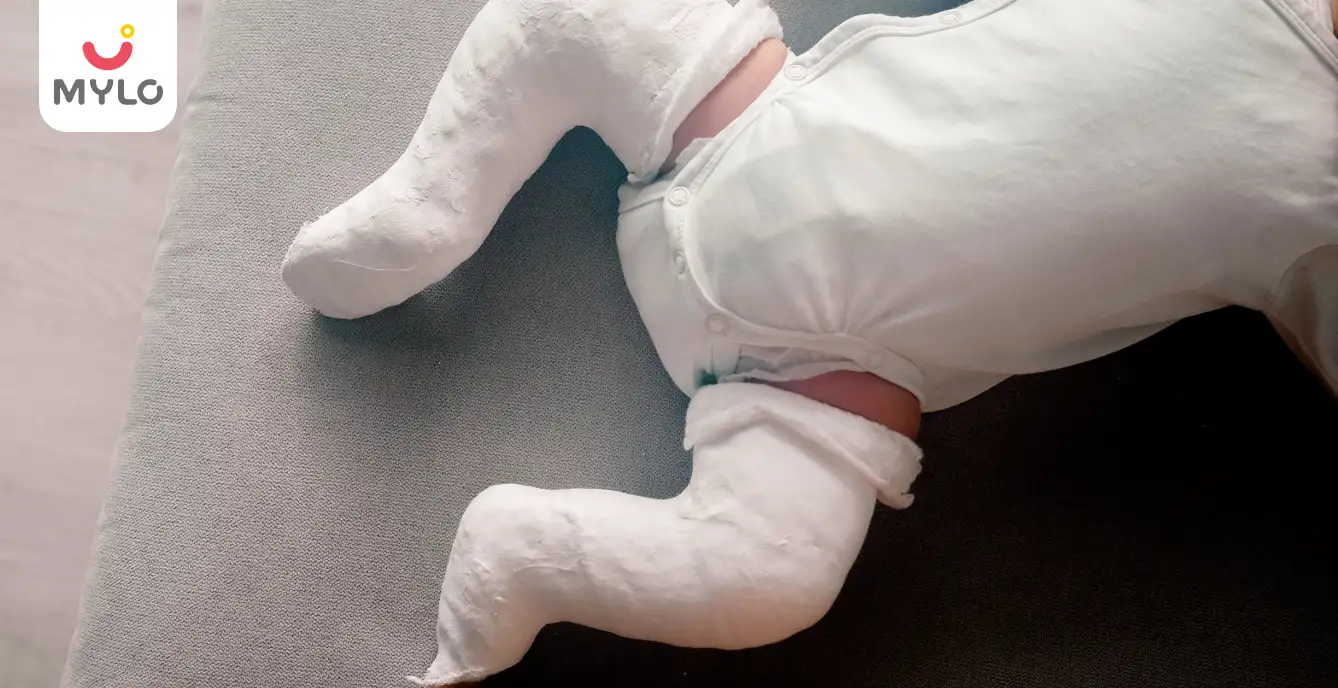
Symptoms & Illnesses
Clubfoot (Talipes Equinovarus): Meaning, Symptoms & More
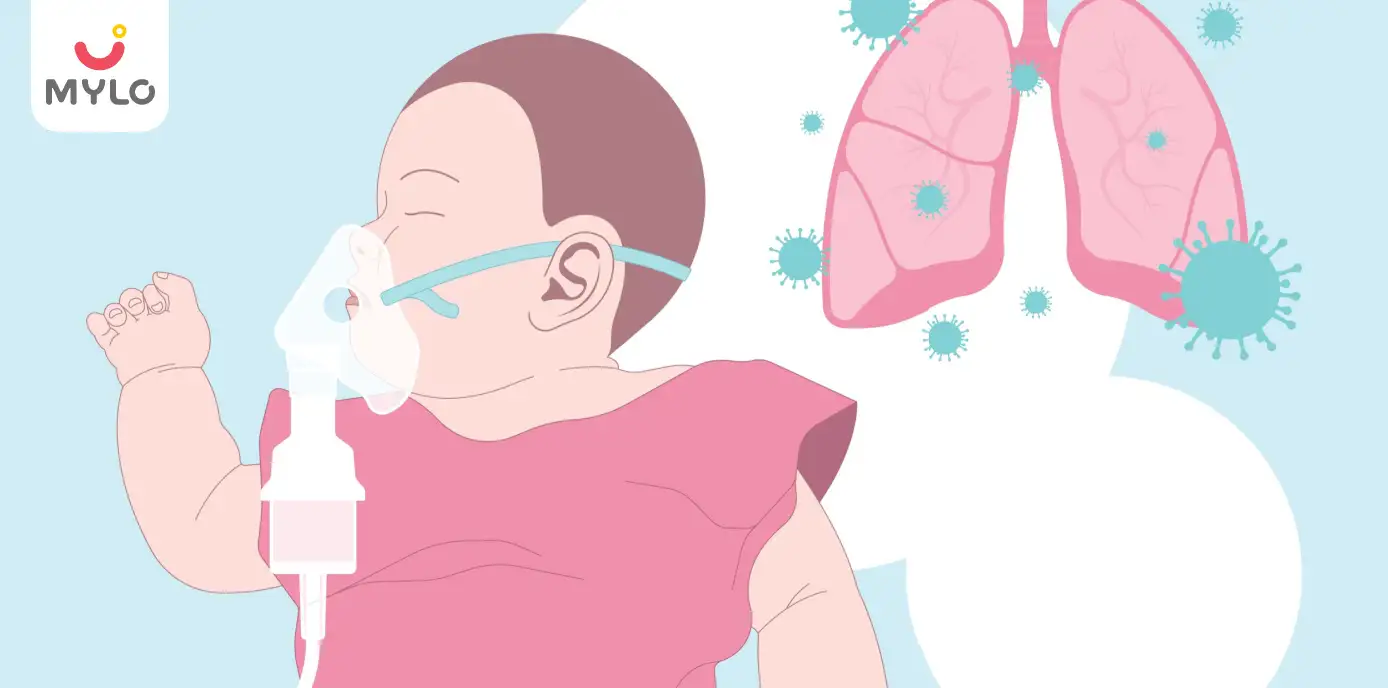
Cold & Cough
RSV (Respiratory Syncytial Virus): Symptoms, Causes & Treatment
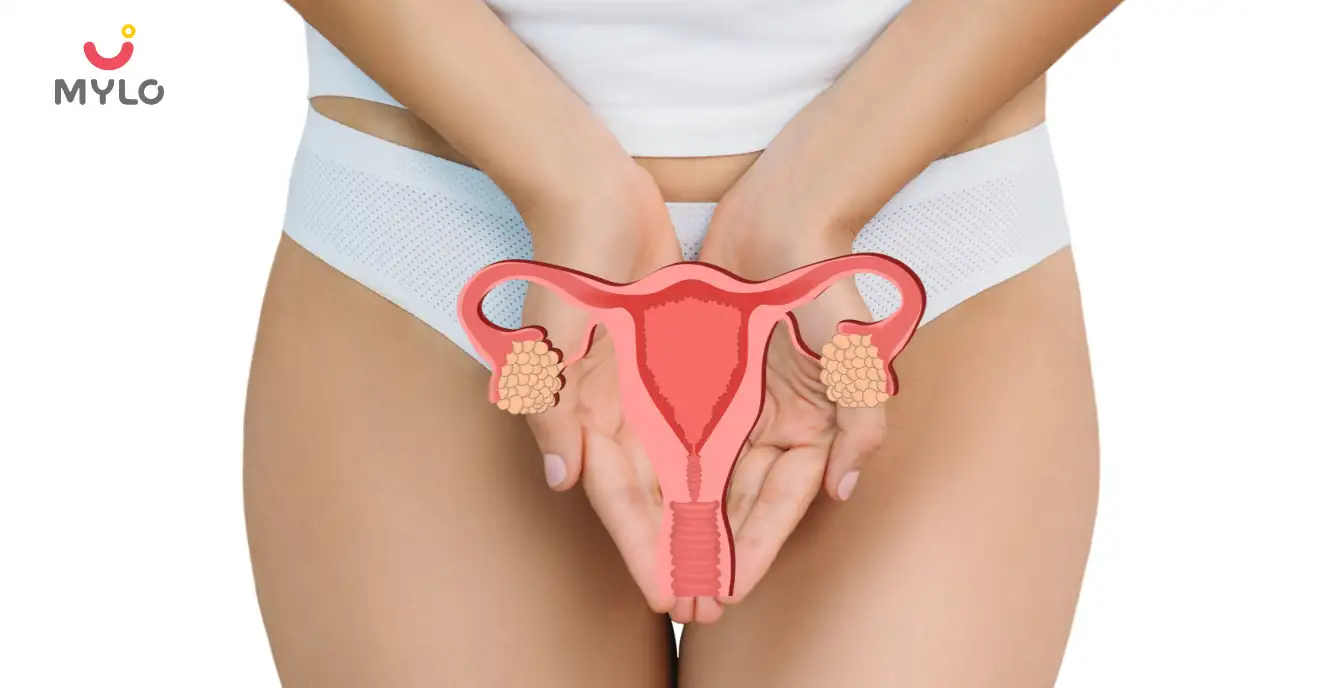
Love, Sex & Relationships
Loose Vagina: Learn How To Tighten Your Vagina Naturally
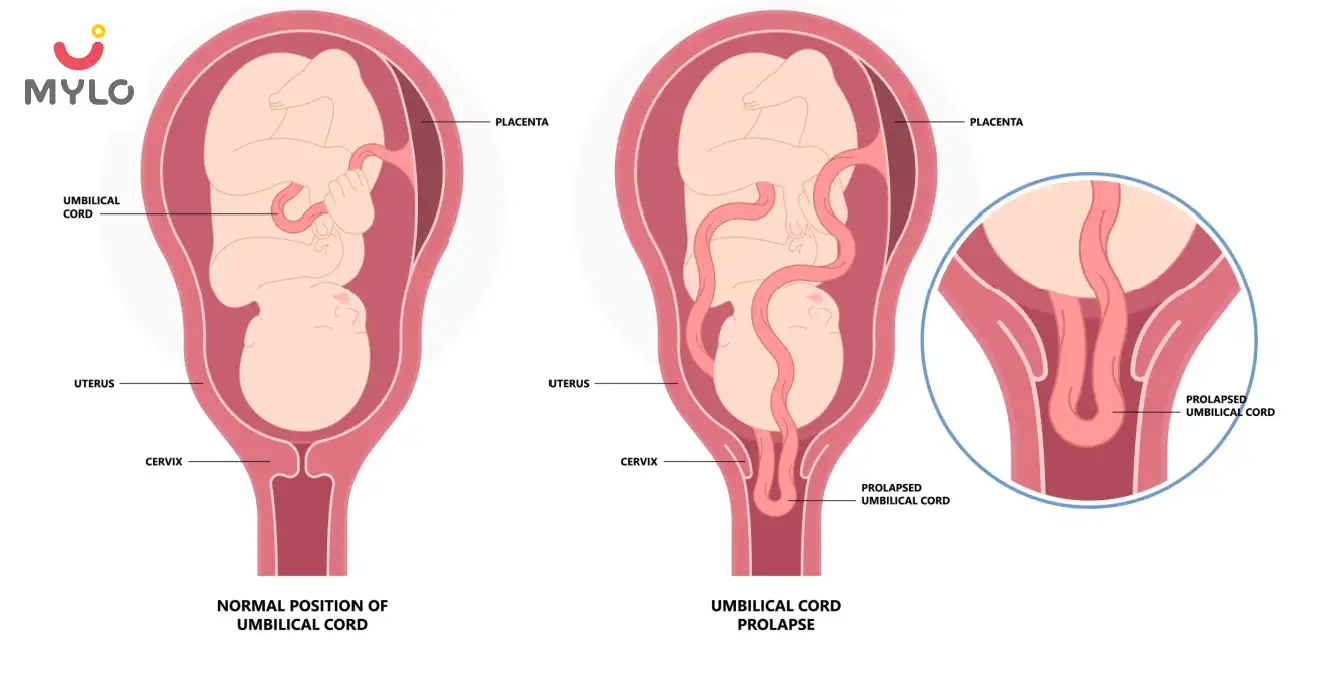
Umbilical Cord Complications
Umbilical Cord Prolapse Causes, Symptoms & Treatment
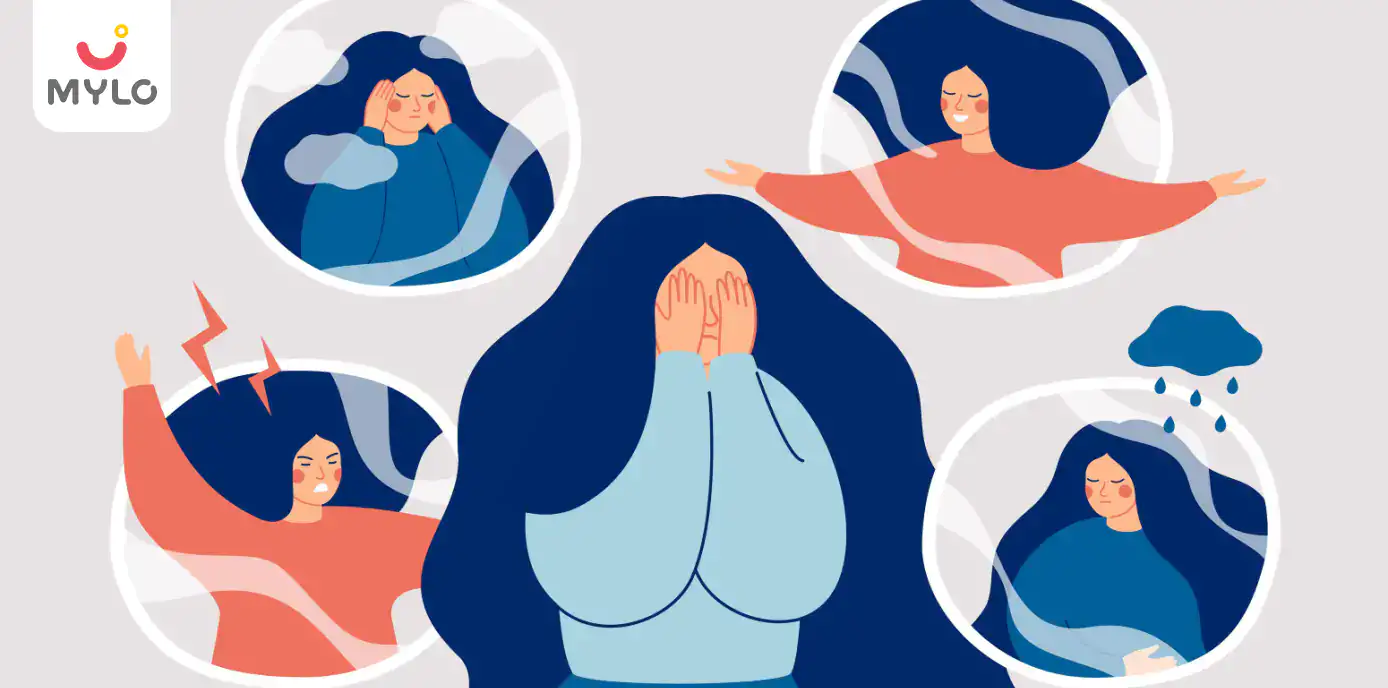
Symptoms & Illnesses
Bipolar Disorder: Causes, Symptoms, Risks & Treatment
- Sinus Infection During Pregnancy Causes & Treatment
- Intrauterine Growth Restriction (IUGR) in Pregnancy
- APGAR Score: Meaning & How it is Performed
- Dyspareunia (Painful Intercourse): Causes & Treatment
- Short Bowel Syndrome: Causes, Symptoms, and Treatment
- Pelvic Inflammatory Disease (PID): Symptoms, Causes & Treatment
- Lightning Crotch in Pregnancy: All You Need to Know
- Vaginal Dilator: Learn its Types & How To Use It?
- Infected Umbilical Cord: Symptoms, Treatment And Prevention
- Is Hair Fall Normal in Pregnancy
- Syphilis: Symptoms, Causes, Risks & Treatment
- Congenital Heart Disease: Symptoms, Causes & Treatment
- Fetal Echo Test in Pregnancy: A Diagnostic Tool for Detecting Heart Defects in the Womb
- Bedwetting (Nocturnal Enuresis): Causes, Symptoms & Treatment


AWARDS AND RECOGNITION
Mylo wins Forbes D2C Disruptor award
Mylo wins The Economic Times Promising Brands 2022
AS SEEN IN
















At Mylo, we help young parents raise happy and healthy families with our innovative new-age solutions:
- Mylo Care: Effective and science-backed personal care and wellness solutions for a joyful you.
- Mylo Baby: Science-backed, gentle and effective personal care & hygiene range for your little one.
- Mylo Community: Trusted and empathetic community of 10mn+ parents and experts.
Product Categories
baby carrier | baby soap | baby wipes | stretch marks cream | baby cream | baby shampoo | baby massage oil | baby hair oil | stretch marks oil | baby body wash | baby powder | baby lotion | diaper rash cream | newborn diapers | teether | baby kajal | baby diapers | cloth diapers |



